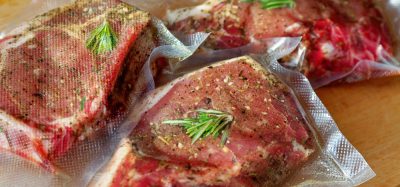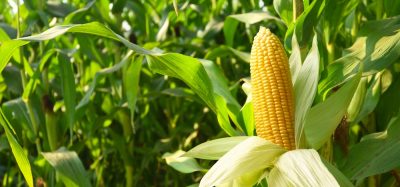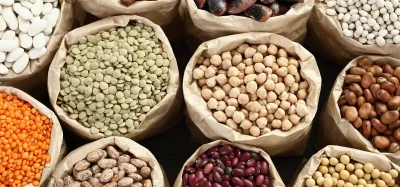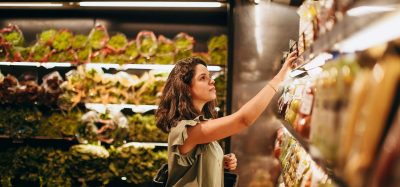‘WWOOFing’ during COVID-19: A risk some US farmers won’t take
Posted: 27 March 2020 | Tyler A. McNeil | No comments yet
The World Wide Opportunities on Organic Farms (WWOOF) programme connects volunteers to work alongside farmers across the world, but COVID-19 social distancing and isolation has presented new challenges. Tyler A. McNeil investigates
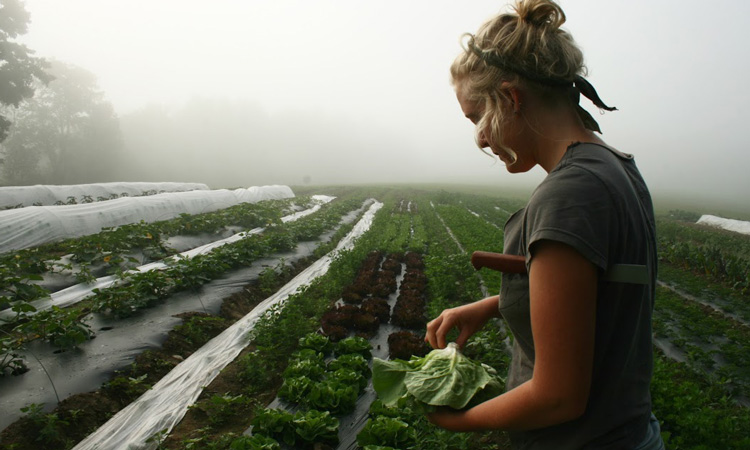

Join our free webinar: The science of next-gen ingredients: fermentation, formulation and function
The functional food market demands innovation, but formulation complexity is rising. This webinar focuses on how to effectively master fermentation-derived ingredients by exploring advanced characterisation techniques, clean-label strategies, and practical application tips.
Date: 11 Feb 2026 | Time: 15:00 GMT
Can’t attend live? No worries – register to receive the recording post-event.
An Alabama organic farmer told six volunteers from a popular cultural exchange programme this: “you can stay as long as you want, but you can’t come back if you leave.”
Chip Spencer, 54, seeks to prevent COVID-19 from reaching his family in Marion Junction, AL even if it could eventually mean fewer hands to help on his 160-acre vegetable and castle farm. It’s a heartfelt change for Spencer, who has hosted more than 125 volunteers dubbed “WWOOFers” in seven years.
WWOOFers are members of World Wide Opportunities on Organic Farms. For a fee, characteristically young volunteers lodge at organic farms while providing mentee opportunities, assistance, companionship, or even vitality depending on hosts’ needs.
Join our free webinar: Rethinking Listeria monitoring: faster, simpler solutions for food safety & environmental testing
Discover how modern Listeria monitoring solutions can support faster, more reliable food and environmental testing, and help elevate your laboratory’s efficiency and confidence in results.
Date: 18 March 2026 | Time: 15:00 GMT
Spencer called many past WWOOFers his “dearest, best friends”, but doesn’t want to be near any of them until the pandemic is over. He stopped accepting guests. Spencer even rejected a beloved 2017 guest’s request to help out on the farm with her partner.
The organic farming community is incredibly resilient.
That former WWOOFer is 29-year-old Coralie Schauviller, who considers Spencer a father figure. She understood Spencer’s decision.
“You feel safer when you’re with people older than you,” Schauviller said. “You feel that control with what’s happening, but that’s not true.”
Her rejection isn’t uncommon. A number of farms in WWOOF-USA, the American organisation, have postponed or altered volunteering opportunities due to social distancing, college sons and daughters taking lodging space, and restricted travel.
This is the largest national crisis within WWOOF-USA’s 19-year history. WWOOF, which started in the UK a half-century back, has organisations around the world, including recent COVID-19 cradles like Spain, Italy, Korea, and China.
In the US, while hunkered down, some members have stayed active in the WWOOF community by backing farmers’ community supported agriculture programmes, a system in which consumers buy produce shares before harvest, the organisation reported.
“The organic farming community is incredibly resilient,” Outreach Programme Director, Tori Fetrow, said in a statement.
WWOOF-USA advises members to follow CDC updates, research their destination, and communicate with hosts about pandemic concerns before travelling. The organisation also per request will pause accounts at no charge for travel delayed members.
“We have a lot of people chomping at the bit to go WWOOFing, but they also realise that the timing of when they can do so is uncertain as we navigate this situation together,” Fetrow said.
Of more than 13,000 registered members and more than 2,000 hosts, WWOOF-USA hasn’t reported any COVID-19 cases so far.
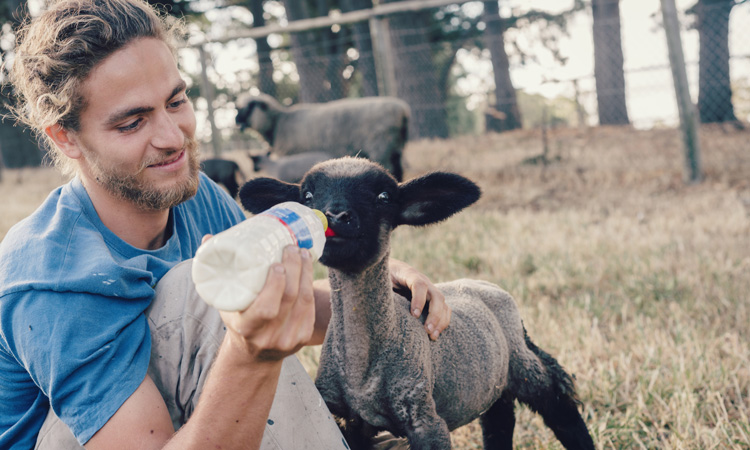

Goode Farm host, Robin Holland, hosted an ill guest in Ballston Spa, NY with her husband and son. Japanese WWOOFer, Kan Nimata, on 11 March travelled there from COVID-19 hotbed New York City. With testing scarce, Holland was initially concerned because Nimata appeared to have a common cold.
“The first three days we were super vigilant and then we sort of relaxed as we just feel like it’s almost a lost cause,” Holland said.
I just couldn’t do that even at the risk of having less assistance here, but that’s part of what we have to do to slow the spread of this.
Nimata’s now reportedly healthy at home in Tokyo. The 46-year-old farmer would’ve kept him longer had he faced travel restrictions.
WWOOF-USA reported a number of hosts provided shelter for international WWOOFers with travel restrictions and college students far from home following university closures.
Holland, too, offered shelter for student Mariya Kurbatova should she lack COVID-19 symptoms following class cancellations at Bard College in New York City. Kurbatova, who initially planned a visit spring break, rain-checked the offer and headed home to Atlanta.
Holland then put a temporary hold on WWOOFers because, she said, the crisis would make matters logistically challenging for all involved.
WWOOFers aren’t consequential for herb, vegetable, and flower fieldwork on Goode Farm, she added. She already expects extra hands during the growing season as family friends from Washington, DC plan to stay during the outbreak.
For most WWOOF hosts, Fetrow said that spring activities are continuing as usual: “From what farmers have shared, daily life and routines on many rural farms in the USA currently hasn’t changed much.”
Virgina Dawnsir of Shannon Farms in Afton, Va expects some change of plans. Dawnsir paused applications following her 47-year-old son’s death in February but started up again shortly after. In March, being at a COVID-19 risk age and living in a tight-knit community prompted the 70-year-old Virginian to cancel all WWOOFers until June.
This broke a seven-year cycle of working alongside volunteers in the spring. Activities typically include groundskeeping, cheese and bread making, building, and caring for cattle. Dawnsir emphasised her WWOOFers aren’t “free labour,” but mentees in a “cultural exchange.”
We feel like our state is the safest, but we also realise there are not that many tests here.
While the latter, the retired hobby farmer still expects to get less done than planned even with some nearby family help.
“I just couldn’t do that even at the risk of having less assistance here,” Dawnsir said about COVID-19. “But that’s part of what we have to do to slow the spread of this.”
In Homer, Alaska, greenhouse and farm owner, Tracy Veal, is still looking for guests but few are biting. Should she continue to receive little interest, Veal has considered trading work for produce among locals to help her grow tomatoes in April.
She’s had no WWOOF applicants and only two from akin programme Workaway. The 54-year-old farmer typically receives between a minimum of six applicants each year. She believes it’s a pandemic-related drop.
At 59 confirmed cases, Alaska has the one lowest infected population in the US, ahead of only four other states. With advisories to stay home and sparse healthcare in the third-least populated state, Veal isn’t surprised by the low application turnout.
“I think there’s also a lot of fear out there,” Veal said. “We feel like our state is the safest, but we also realise there are not that many tests here.”
WWOOF-USA expects travel complications to hold up some and discourage others to sign up.
This crisis has pushed Kaleigh Watson, 24, closer to joining WWOOF-USA. After receiving news of a layoff from the virus-inflicted recession, Watson immediately thought of the organisation from WWOOFer friends. Learning organic farming “couldn’t be more opposite” from working at education company HackCville in Charlottesville, Va, Watson said.
“Yeah, I think knowing that I may have a few months off soon where I’ll be job hunting it seemed like a ‘why not now?’ moment,” Watson said.
About the author
Tyler A. McNeil is a business writer from Upstate New York. He has written in Bakery and Snacks, Schenectady Daily Gazette, CivMix, Albany Times Union, and New York Upstate. Tyler graduated from the University at Albany in 2018.
Related topics
COVID-19, Outbreaks & product recalls, Regulation & Legislation, Supply chain
Related organisations
Related regions
Related people
Chip Spencer, Kaleigh Watson, Kan Nimata, Mariya Kurbatova, Robin Holland, Tori Fetrow, Tracy Veal, Virgina Dawnsir




